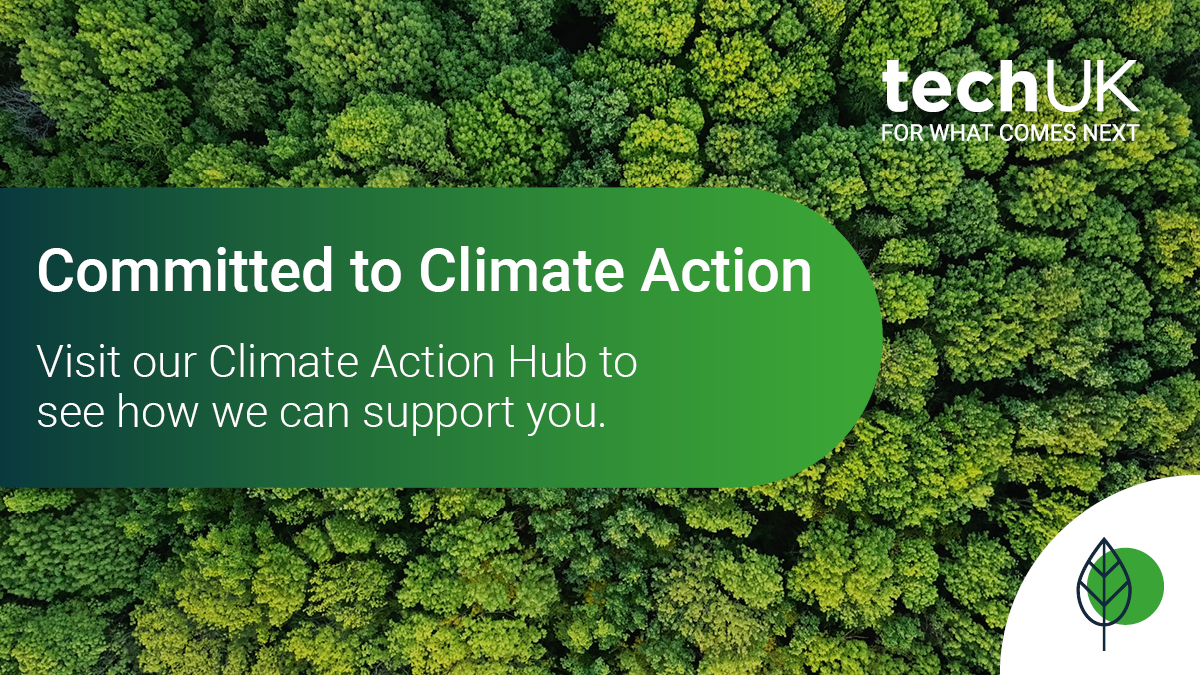The Road to Net Zero: The Benefits and Risks of AI (Guest blog from Techmodal)
Introduction
Due to human activity, our climate is changing faster than nature can keep up. A collective effort is required if we stand any chance of curbing climate change, hence the ambitious goals set at the Paris Agreement in 2015. This unprecedented agreement unified almost 200 countries to limit global temperature rises to 1.5 degrees Celsius above pre-industrial times and greenhouse gas emissions to net zero between 2050 and 2100.
At COP26, the climate agenda for the next decade was set, focusing on reducing fossil fuel use and financially supporting developing countries. However, the headline remains: the world is still not on track. Sure, the updated policies are slowing the GHG and temperature increase, but last year’s NDC Synthesis Report confirmed that we are still far off the trajectory of stabilizing the global temperature rise. In fact, the latest findings by the Intergovernmental Panel on Climate Change show that the current rate, unless changed quickly, may lead to a temperature rise of 2.7°C by the end of the century.
Can AI Deliver a Net Zero World?
The UK’s AI roadmap states that, “AI technologies are an essential part of the toolbox for innovating to reduce greenhouse gases in the atmosphere, and to reduce the environmental impacts of goods, services and human activities.” To develop net zero businesses and nations, decision makers need access to up to date, reliable information about the emissions across their supply chains. AI possess the power to process huge amounts of data and provide insight that can support the delivery of a net zero world.
For example, solar power is a clean energy source but currently has large uncertainty in our energy forecasts. If a dark cloud moves across the sky, the grid can lose hundreds of megawatts of energy generation within minutes. The power lies within the ability of AI to analyse and interpret live data feeds gathered from weather satellites and sensors. Using this data, models can be created that learn from past weather patterns to predict the future. Results produced from these models are more efficient than traditional methods, allowing AI to clear some of the “fog”.
This solution is easily generalised for other energy sources – a similar situation occurs when we lose power produced from wind turbines. AI can support solar and wind forecasting, battery management and analysis of smart meter data to help manage diverse, clean energy generation.
The Risks of AI
There are many examples of flawed AI systems – Amazon were using an engine to rank CVs of applicants. It turned out that, because of the male dominance across the tech industry, the algorithm taught itself to discriminate against women, a reminder that the output from our processes can have hidden biases. Deep learning also has a harmful trend of rapidly increasing the computational resource required to produce better AI models, a pattern that directly contradicts the goal of net zero. Of course, if an AI model were trained using electricity generated primarily from renewables, then its carbon footprint would be correspondingly lower. However, the bottom line is that AI has a meaningful carbon footprint today.
The UK will only feel the full benefits of AI if all parts of society have confidence in the technologies, and regulations that enable them. That confidence will depend on clear ethics and transparency of the systems in question. Metaphors like ‘the cloud’ imply something floating and delicate within a natural industry when in fact the cloud is a resource-intensive technology. Advances in AI and related technology provide an enormous range of opportunities to help us achieve the goals of COP26 and ensure a successful net zero journey.
You can find out more about Techmodal on their website here.
Author:
Kichelle Comrie-Carson , Data Scientist at Techmodal
techUK - Committed to Climate Action
techUK provides opportunities for members to showcase climate tech innovation. Members are invited to speak at events, contribute to reports, write blogs, run webinars, and take part in podcasts that support their environmental action. We strive to amplify the sector’s commitment to sustainability. To discuss how we can support you, please visit our Climate Action Hub and click ‘contact us’.


